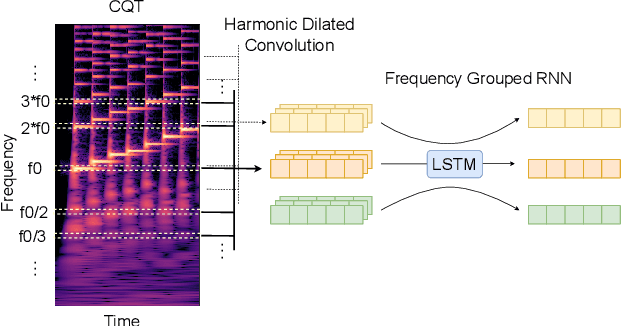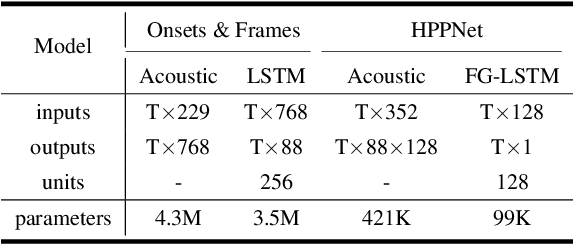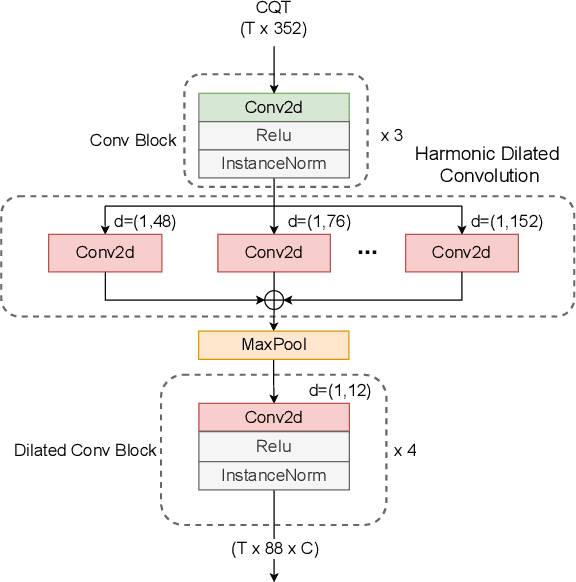HPPNet: Modeling the Harmonic Structure and Pitch Invariance in Piano Transcription
Paper and Code
Aug 31, 2022



While neural network models are making significant progress in piano transcription, they are becoming more resource-consuming due to requiring larger model size and more computing power. In this paper, we attempt to apply more prior about piano to reduce model size and improve the transcription performance. The sound of a piano note contains various overtones, and the pitch of a key does not change over time. To make full use of such latent information, we propose HPPNet that using the Harmonic Dilated Convolution to capture the harmonic structures and the Frequency Grouped Recurrent Neural Network to model the pitch-invariance over time. Experimental results on the MAESTRO dataset show that our piano transcription system achieves state-of-the-art performance both in frame and note scores (frame F1 93.15%, note F1 97.18%). Moreover, the model size is much smaller than the previous state-of-the-art deep learning models.
 Add to Chrome
Add to Chrome Add to Firefox
Add to Firefox Add to Edge
Add to Edge